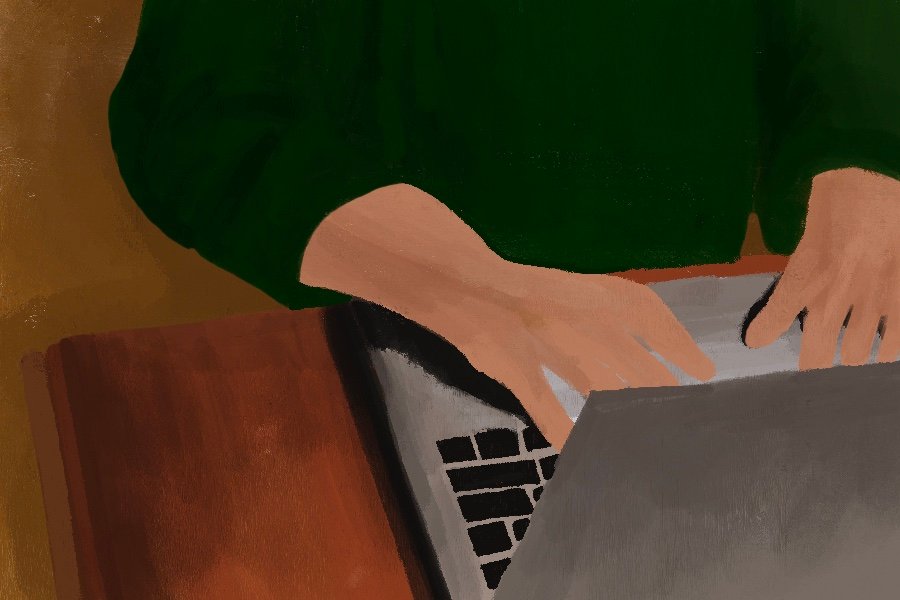Professors make efforts to deter academic dishonesty
File illustration by Catherine Buchaniec
Monitoring assessments is a challenge in the age of remote learning, and professor approaches vary.
October 15, 2020
The virtual learning environment has forced professors to transform instruction, along with ways they administer assessments in order to address concerns about academic dishonesty.
Some have opted to relax their usual formats, while others have taken extra steps to eliminate cheating opportunities.
In Medill sophomore Trent Brown’s computer science class, students are required to use LockDown Browser, a secure browser designed specifically for exam-taking, to prevent them from changing windows during their assessment. In other classes, some teachers mandate that students turn on their webcams during the test.
“I appreciate that (my professor is) giving us the liberty to not have to show our faces or show our environments and just trust that we’re not cheating in that way,” he said.
Brown said he prefers this honor-based system to the more stringent ones he experienced in the spring. He admitted that he could have cheated pretty easily if he wanted to, since no one was there to watch him. Some degree of academic dishonesty is inevitable when students aren’t being proctored in a physical classroom, no matter what professors do, Brown said.
Economics Prof. Scott Ogawa said he was concerned about administering a traditional closed-book exam remotely. That, he said, would give dishonest students an unfair advantage.
“I don’t have any data on it, but I am confident that a lot of students will open their book at that point,” he said. “And some won’t — and the ones who don’t are the ones who are penalized.”
Preventing students from using any extra written resources in a remote classroom environment isn’t exactly feasible, Ogawa said, so assessments in his classes are now open-note. He’s worried about a different kind of cheating, where students communicate about answers in real time, he said.
That’s why he rigidly proctors the weekly tests in his Microeconomics 310 class. Students are required to keep their webcam on, as well as a stand to prop up their smartphone and record footage of their side profile and hands, which is monitored via Zoom.
Ogawa’s student Natalia Camino-Cantu said the system has exacerbated the awkwardness and difficulties of the virtual classroom environment. The feeling of being watched does not improve the test-taking experience for her. But the Weinberg sophomore also understands the need to reinforce academic integrity.
“It is tedious, and it’s a little weird having someone constantly watch you while you take a test and make sure everything is in frame, but I understand why he does it,” she said.
Ogawa said he admits his system is complicated and inconvenient, for both him and his students, but he believes it is an effective deterrent for cheating.
He said he doesn’t know for sure if students have found ways to circumvent his efforts and cheat successfully. Ultimately, he said, adjusting to these new difficulties and the other struggles of remote learning is an ongoing challenge.
“I do what I can,” Ogawa said. “I do it to try to create confidence in the system. I don’t know how effective it is.”
Email: [email protected]
Twitter: @joshdperry
Related Stories:
—Isolation sinks in as students approach midterms
—Powering Down: Low-income students are struggling to plug into remote classes
—Students grapple with endless screen time and “Zoom fatigue”


